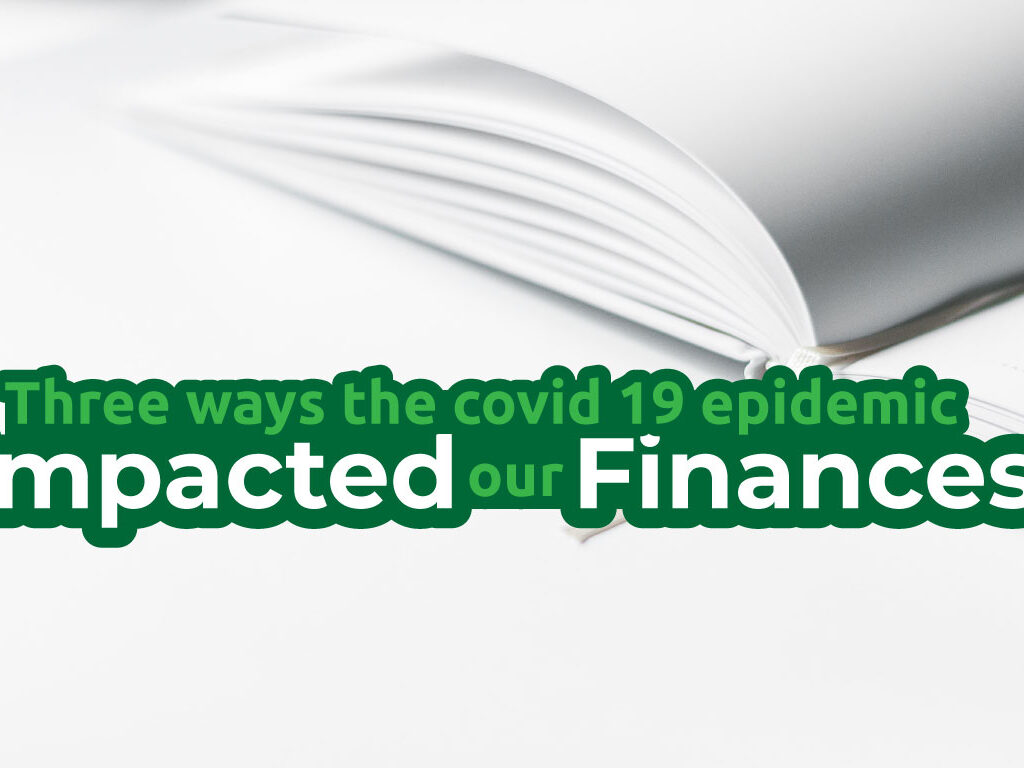Coronavirus, COVID-19, Mental Health Awareness
Three Reasons How the COVID-19 Pandemic Affected Us Financially
The COVID-19 pandemic left us with no money. With a single blink of an eye, all of our financial plans and capacity have gone down. Like a thief, it brought down the economies of every country around the globe. The whole world was taken by surprise as it experienced a financial crisis since the incident in 2008 that left millions of underemployed, unemployed, and unable to access education and healthcare.
This economic crisis resulted in many individuals’ widespread stress and anxieties as they worry about their financial security in the future. According to the recent Global Financial Stability Report, the financial system experienced a dramatic impact that could further lead to economic instability due to the ongoing health crisis. Supply chains collapsed, different companies and selling establishments issued bankruptcy, and most workers faced unemployment issues. In the end, all of these things came from one single root. It is MONEY itself.
(Sa mga pangyayaring ito, hindi natin maiiwasan ang mag-alala sa ating pinansyal na kinabukasan. Lalo na sa ating mga Kabayan dito sa Kuwait, napakahirap ang mawalan ng mga trabaho. Sa pagpapatupad ng gobyerno sa mga lockdown measures, napahinto ang pagpasok natin sa mga trabaho. Nagresulta ito sa kawalan ng pera ng ating mga kababayan para sa pang-araw araw na mga gastusin.)

Financial planning is essential to be prepared when a crisis like these days arrived. The COVID-19 pandemic affected both the rich and the poor. It does not depend on whether your salary rate is high or low. As long as an individual has planned these things carefully, they will not suffer much of this financial crisis.
All of us are thinking about how we can overcome these financial anxieties that you are currently facing. Identifying the reason for these stresses and worries is vital in finding the right solutions and actions. If you are one of the people who struggled financially, here are the following possible reasons.
1. Loss of Job Earnings and Salaries
For the people who worked online, the COVID-19 pandemic may not affect them significantly. However, for those individuals who rely on job labors or work, which requires face-to-face interaction, then the loss of employment is their main problem.
(Especially sa mga OFW na mga kababayan natin, marami sa kanila ay nagtatrabaho sa labor department. Kaya ang pag-suspende ng pamahalaan sa Kuwait sa operasyon sa pribado at pampublikong sectors ang dahilan sa pagkawala ng mga trabaho ng ating mga Kabayan. Kaya marami sa atin an gang-alala kung makakabalik pa ba tayo sa ating mga trabaho. Kasama na nito ang responsibilidad na dapat matugunan natin ang mga pangangailangan ng ating pamilya.)
2. Lack of Savings
It is in these times where we can say that “I wish I would have saved most my money rather than spending them on unnecessary items.” As the famous saying goes, “Save first before spending.” (Bilang isa sa mga OFW, marami sa atin ang hindi nakapag-ipon dahil diretso natin na ipinapadala ang pera sa Pilipinas o nagastos natin sa mga bagay na alam naman natin na hindi natin kailangan. Kaya pagdating sa panahon ng pandemya, wala na tayong mapag-kukunan ng pera kasi napatigil din ang mga trabaho.)
The suspension of our jobs and works does not mean that our daily financial expenses have stopped. Even if our work is still not available, our day-to-day expenses continue. It includes our costs in food, rent, water, electricity, and other essential commodities. Therefore, it calls us to prepare ourselves with an emergency fund at this time.

3. Piling-up of Debts
Every individual’s ability to earn has been suspended because of the threat of COVID-19 disease and its precautionary measures. Because many of our fellow Kabayans cannot pay for their rent, their debt increases. Many people chose to get money through loans from companies or private individuals.
(Ang lahat na ito ay papunta lamang sa araw kung saan tayo ay mababaon sa utang. Habang ito ay lumalaki, mas lalong nagiging mahirap ang pagbayad sa mga ito.)
In this given reason we can see the importance of money within our lives. Money is the main root of all these problems. Because of it, we experience anxieties, hopelessness, and depression. Some people even attempt to commit suicide due to the issues of money itself. This is the current situation that many OFWs experience not only in Kuwait but also in other countries in the world. We must not be blinded to this increasing financial crisis. It must serve as a reminder to all of us to value the importance of money in our lives.
To know more financial tips on how to face this crisis, click here.
MUST READ AND SHARE!
Your Ultimate Access to Kuwait Directories in this COVID-19 Crisis
CORONAVIRUS: Kuwait OFW Quarantine Diaries – TABLE OF CONTENTS
Five Important Steps in Facing Financial Crisis During the COVID-19 Pandemic
If you like this article please share and love my page DIARYNIGRACIA PAGE
Questions, suggestions send me at diarynigracia @ gmail (dot) com
You may also follow my Instagram account featuring microliterature #microlit. For more of my artworks, visit DIARYNIGRACIA INSTAGRAM

A multi-award-winning blogger and advocate for OFWs and investment literacy; recipient of the Mass Media Advocacy Award, Philippine Expat Blog Award, and Most Outstanding Balikbayan Award. Her first book, The Global Filipino Bloggers OFW Edition, was launched at the Philippine Embassy in Kuwait. A certified Registered Financial Planner of the Philippines specializing in the Stock Market. A recognized author of the National Book Development Board of the Philippines. Co-founder of Teachers Specialist Organization in Kuwait (TSOK) and Filipino Bloggers in Kuwait (FBK). An international member of writing and poetry. Published more than 10 books. Read more: About DiaryNiGracia

 FREE DOWNLOAD NOW!!!
FREE DOWNLOAD NOW!!!

Peace and love to you.